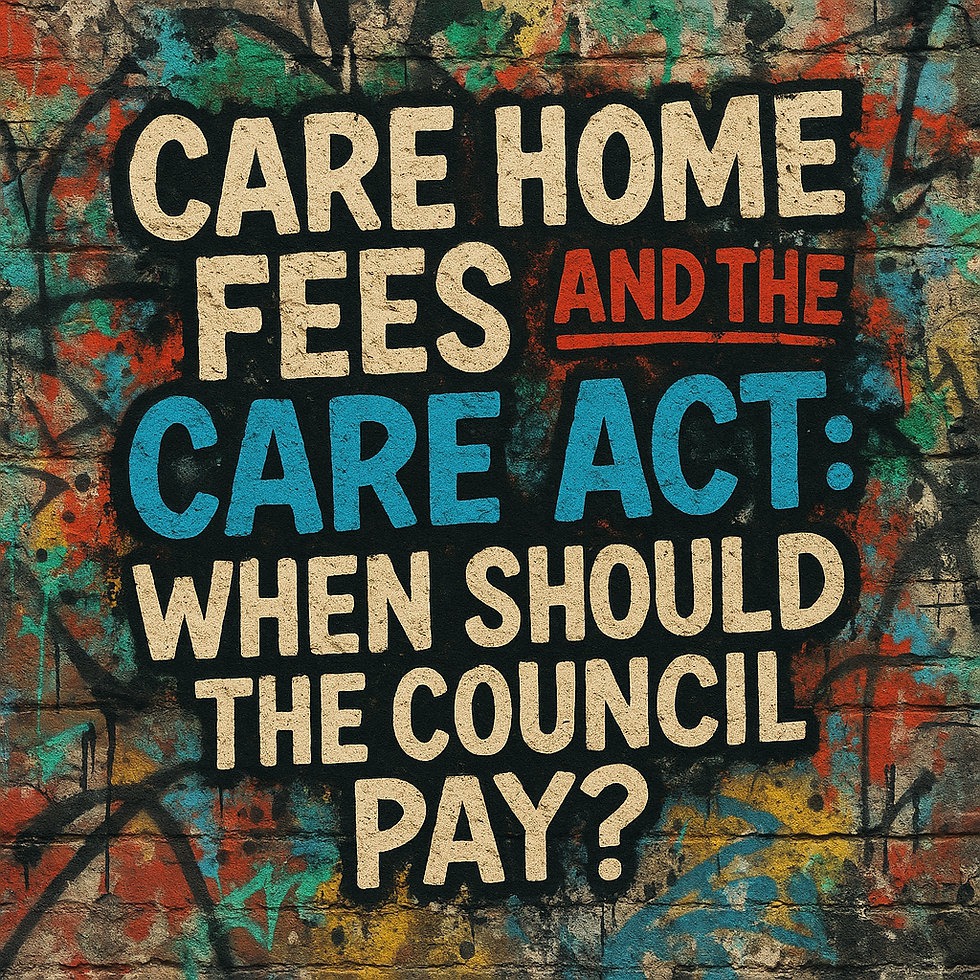How legal professionals are intrinsic in safeguarding vulnerable adults from abuse.
- Team Nellie

- May 2, 2020
- 2 min read
Updated: Apr 21, 2023
There has been a considerable increase in the number of people taking out a lasting power of attorney in the past year; the OPG will claim this is due to heightened awareness around LPA's. The Alzheimers society statistics also show those living with a diagnosis of dementia is set to double every decade. So while the OPG is shining a spotlight on the benefits of an LPA, I wonder how much of the increase in uptake is due to to the rise in those living with dementia.
So let us be honest, a large proportion of people only consider a lasting power of attorney when a diagnosis of a dementia type illness is raised.
Moreover, if there is an increase in lasting powers of attorney, there is also the potential increase of abuse by attorneys.
Strong criticism of Lasting Powers of Attorney (LPAs) by recently retired Senior Judge Lush explained that LPAs are open to abuse and up to 15% of LPAs may involve abuse by the family member appointed to act as an attorney.
We usually consider the caring professions such as Social Workers and Nurses being on the "front-line" of safeguarding. I would argue that legal professionals are up there with them.
In Children's services across the country, there is a reduction in referrals over the summer holidays, simply because children aren't at school and teachers aren't there to spot the warning signs.
Solicitors have the opportunity to provide that same safe-adult that can spot potential signs of abuse and ensure the vulnerable adult is safeguarded.
The simplest way of doing this is via a mental capacity assessment. If you have any concern regarding the mental capacity to grant lasting power of attorney for property or health and welfare, then a mental capacity assessment should be completed.
So how can an assessment safeguard a vulnerable adult?
An assessment should be a therapeutic conversation; the individual should be made to feel comfortable and relaxed, any assessor should support the person deciding by offering alternatives to the decisions such as not making an LPA and the results of this. In the case of not completing a Health and Welfare Attorney, this means decisions are made by a multi-disciplinary team in the persons Best Interests, these meetings, however, should not exclude family, it just means they are not the decision-maker. For some people, this alternative is preferable.
The assessment should also identify whether there is any undue influence, and if there is note that the person's decision is not their own.
At Nellie we only use qualified, registered Social Workers with experience in adult safeguarding, this means if we do identify a situation where there is the potential for abuse we have the knowledge, skills and process in place to support the individual and the legal professional.
However, without requesting a mental capacity assessment, the chances of the risk of abuse increases, legal professionals working with vulnerable adults are as important a part of the safeguarding process ad teachers are with children.
If you need help in ensuring your clients are appropriately safeguarded contact one of the team at www.nelliesupports.com




Comments